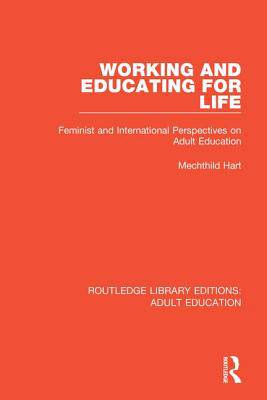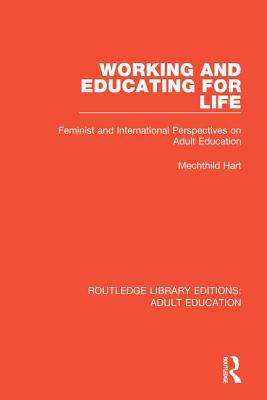
- Retrait gratuit dans votre magasin Club
- 7.000.000 titres dans notre catalogue
- Payer en toute sécurité
- Toujours un magasin près de chez vous
- Retrait gratuit dans votre magasin Club
- 7.000.0000 titres dans notre catalogue
- Payer en toute sécurité
- Toujours un magasin près de chez vous
Working and Educating for Life
Feminist and International Perspectives on Adult Education
Mechthild HartDescription
Originally published in 1992, this book presents an alternative view of adult education. The author moves the analysis from the usual focus in adult education literature on skills and skill deficits, and concentrates instead on the educational potential of work itself. By linking issues of gender and the developing world, an alternative concept of work and productivity is formulated, serving as the basis for new approaches and paradigms in adult education. The book draws on two decades of studying critical social, political and economic, educational and feminist theory and examines the link between the international and sexual division of labour, and at the relationship between work, nature and technology.
Spécifications
Parties prenantes
- Auteur(s) :
- Editeur:
Contenu
- Nombre de pages :
- 262
- Langue:
- Anglais
- Collection :
Caractéristiques
- EAN:
- 9781138313286
- Date de parution :
- 23-11-18
- Format:
- Livre relié
- Format numérique:
- Genaaid
- Dimensions :
- 156 mm x 233 mm
- Poids :
- 649 g

Les avis
Nous publions uniquement les avis qui respectent les conditions requises. Consultez nos conditions pour les avis.






